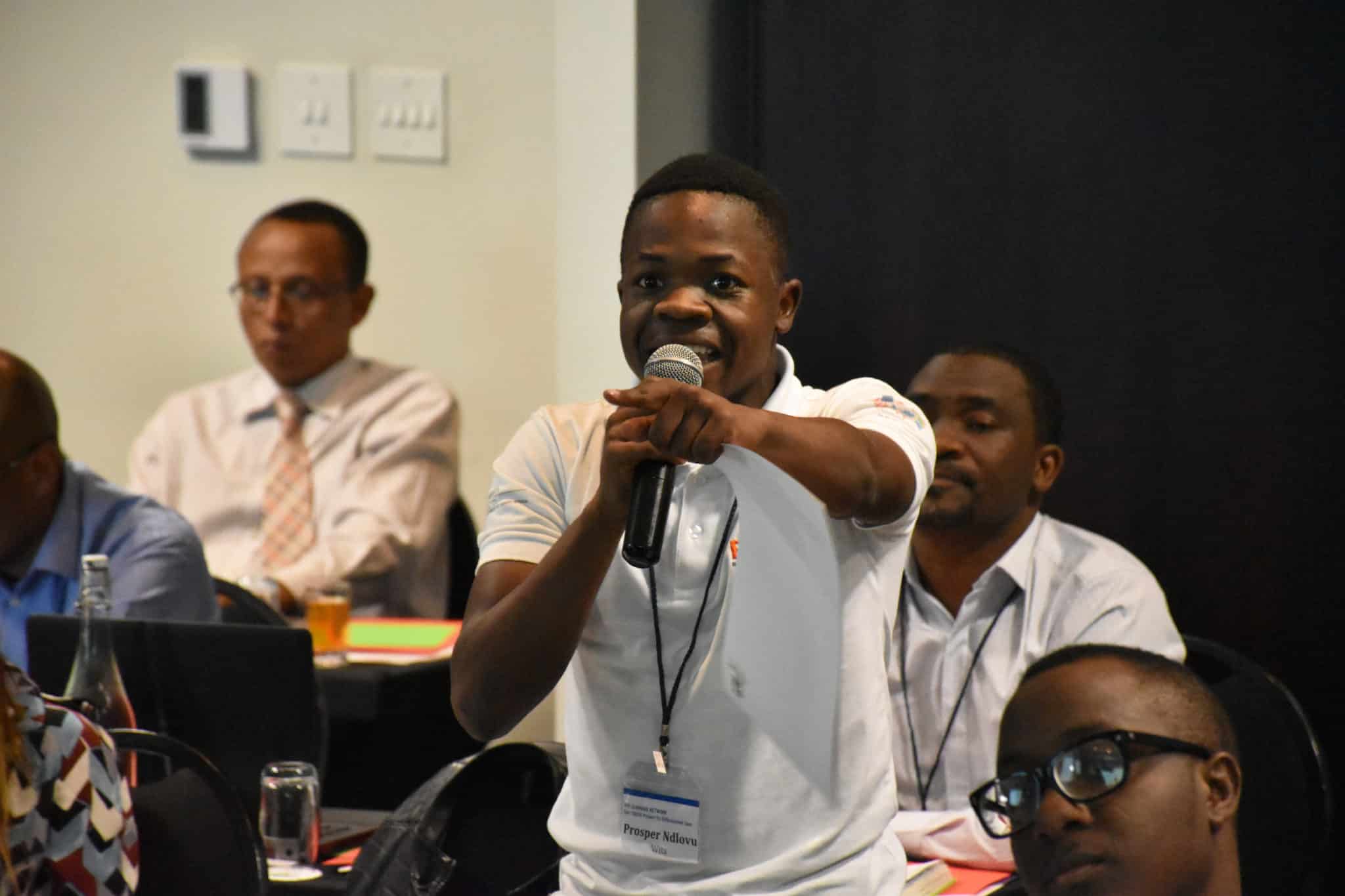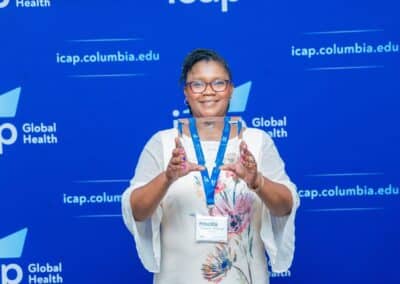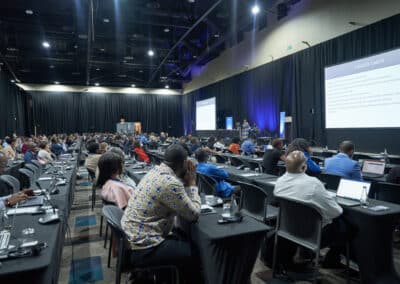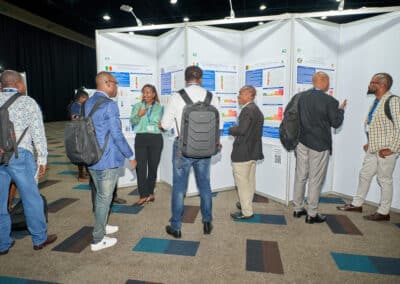Johannesburg, South Africa – The HIV Coverage, Quality, and Impact Network (CQUIN) held its second “community of practice” workshop, focused on differentiated service delivery for adolescents and young adults. The three-day gathering, held from October 25-27 in Johannesburg, brought together nearly 70 participants from all nine CQUIN countries.
Responding to the need for differentiated models of care for adolescents, CQUIN member countries identified the topic as a priority for joint learning and knowledge co-creation at the CQUIN launch meeting in March 2017.
Adolescents and young adults are a priority population for HIV prevention and treatment services. Although the 1.8 million adolescents living with HIV account for just five percent of HIV-infected individuals, they contributed 20 percent of new infections in 2015. They are also the only age group in which deaths due to HIV are not decreasing. Results from the Population HIV Impact Assessments (PHIA) highlight the disparity in treatment access among adolescents, as well as low rates of viral suppression.
“Over the last decade with the global scale-up of antiretroviral therapy (ART), we’ve seen that adolescents have not fared quite as well as adults,” said Elaine Abrams, MD, senior director of research at ICAP. “Fewer know their HIV status, fewer are on treatment, and rates of viral suppression are lower than what we see in adults. Differentiated service delivery allows us to tailor services to the special needs of this group so we can improve care and have the best outcomes.”
Galvanized by youth advocates who attended the meeting, participants shared experiences and resources on the how of differentiated service delivery and worked together to develop new tools and resources as well as an overall framework for scale-up of differentiated service delivery models for adolescents living with HIV.
“Differentiated service delivery is innovative, and young people love innovation,” said Prosper Ndlovu, one of several youth advocates that attended. “It’s an approach that covers many aspects of the care we need on a large scale,” he added. Mr. Ndlovu, a champion of youth-friendly services and a South African native, spoke to participants throughout the meeting about what young people living with HIV need. He and his peers also participated in breakout sessions, adding valuable knowledge and expertise to participants as they worked together to develop tools and guidelines.
Differentiated service delivery is innovative, and young people love innovation.”
-Prosper Ndlovu, IAS Differentiated Care Youth Champion, WITS RHI
Over three days, workshop participants—including ministries of health, implementing partners, youth advocates, academia, and non-governmental organizations—participated in plenary presentations, panel discussions and breakout groups focusing on key issues from differentiated testing to differentiated treatment. The panels focused on innovations and experiences, optimizing care, evidence from the front-line and scientific recommendations, and other priority topics. On the second day of the workshop, participants engaged in a lively debate on the pros and cons of school-based services.
Participants took a deeper dive, engaging in breakout group discussions around country-specific priorities and co-creation of resources needed for scale-up. Representatives from each country also used ICAP’s Differentiated Service Delivery Dashboard to conduct self-assessments on their progress.

Clockwise from left: participants cast a vote during a panel session; brainstorming ideas for tool development and resource prioritization; Elaine Abrams delivers closing remarks
“A lot of partners are working very hard to see these tailored services implemented at scale,” said Dr. Abrams. “CQUIN adds to the global dialogue on this topic. It brings an opportunity for exchange and learning in real time so that countries can share experiences and best practices, and think creatively.”
Moving forward, country teams have identified priorities for ongoing knowledge exchange and joint work. Initial collaborative projects include work to develop eligibility criteria for adolescent differentiated service delivery, and tools to guide and monitor the transition of adolescents from pediatric to adult treatment services.
View the complete meeting summary and presentations.
Learn more about this community of practice by visiting the project page and sign up for our monthly newsletter for regular updates.






